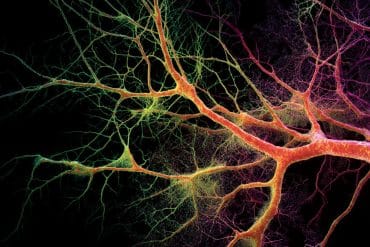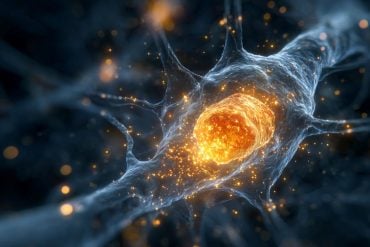Summary: Sleep deprivation doesn’t just alter brain activity, it also changes the connection between neurons. Both changes have a significant effect on working memory and cognitive performance.
Source: Leibniz Research Center for Working Environment and Human Factors
Anyone who has ever had a night of poor sleep or no sleep at all knows how much the lack of sleep can affect concentration the next day.
Researchers at the Leibniz Research Center for Working Environment and Human Factors have studied how exactly sleep deprivation affects brain performance.
The results show that not only brain activation, but also the alteration of connections between neurons is affected by sleep deprivation. Both have a significant effect on memory performance and working memory.
Sufficient sleep is essential for optimal daytime performance. A lack of sleep not only impairs attention, but also memory and learning processes. To encode new memory content, connections between neurons in the brain are strengthened or weakened during wakefulness.
This process is called neuroplasticity. During sleep, relevant connections are further strengthened, and irrelevant ones weakened.
In case of sleep deprivation, this weakening of irrelevant connections does not take place. Cortical excitability remains increased, which leads to impaired signal transmission. New, external stimuli and information can therefore only be processed poorly or not at all and learning becomes more difficult.

That increased cortical excitability disturbs neuroplasticity. This means that cerebral overactivity makes it more difficult for the neurons to shape connections.
Optimal excitability of the brain could prevent diseases
However, there is a difference between complete sleep deprivation and working against personal sleep and wake phases (chronotype). In the latter, brain excitability and neuroplasticity are reduced during suboptimal times of day.
In sleep deprivation, however, excitability is increased. Especially in demanding activities, working in accordance with one’s chronotype can improve work performance.
Since brain plasticity and excitability depend on sleep, it could play a role in preventing diseases with cognitive deficits. Examples of such diseases are Alzheimer’s disease, which is often accompanied with sleep disturbances, and major depression.
With depression brain activity and neuroplasticity are reduced, and this could be counteracted upon by sleep deprivation, a well-introduced antidepressant treatment.
About this sleep and cognition research news
Author: Press Office
Source: Leibniz Research Center for Working Environment and Human Factors
Contact: Press Office – Leibniz Research Center for Working Environment and Human Factors
Image: The image is in the public domain
Original Research: Open access.
“Sleep-dependent upscaled excitability, saturated neuroplasticity, and modulated cognition in the human brain” by Mohammad Ali Salehinejad et al. eLife
Abstract
Sleep-dependent upscaled excitability, saturated neuroplasticity, and modulated cognition in the human brain
Sleep strongly affects synaptic strength, making it critical for cognition, especially learning and memory formation. Whether and how sleep deprivation modulates human brain physiology and cognition is not well understood.
Here we examined how overnight sleep deprivation vs overnight sufficient sleep affects (a) cortical excitability, measured by transcranial magnetic stimulation, (b) inducibility of long-term potentiation (LTP)- and long-term depression (LTD)-like plasticity via transcranial direct current stimulation (tDCS), and (c) learning, memory, and attention.
The results suggest that sleep deprivation upscales cortical excitability due to enhanced glutamate-related cortical facilitation and decreases and/or reverses GABAergic cortical inhibition.
Furthermore, tDCS-induced LTP-like plasticity (anodal) abolishes while the inhibitory LTD-like plasticity (cathodal) converts to excitatory LTP-like plasticity under sleep deprivation. This is associated with increased EEG theta oscillations due to sleep pressure.
Finally, we show that learning and memory formation, behavioral counterparts of plasticity, and working memory and attention, which rely on cortical excitability, are impaired during sleep deprivation.
Our data indicate that upscaled brain excitability and altered plasticity, due to sleep deprivation, are associated with impaired cognitive performance. Besides showing how brain physiology and cognition undergo changes (from neurophysiology to higher-order cognition) under sleep pressure, the findings have implications for variability and optimal application of noninvasive brain stimulation.







